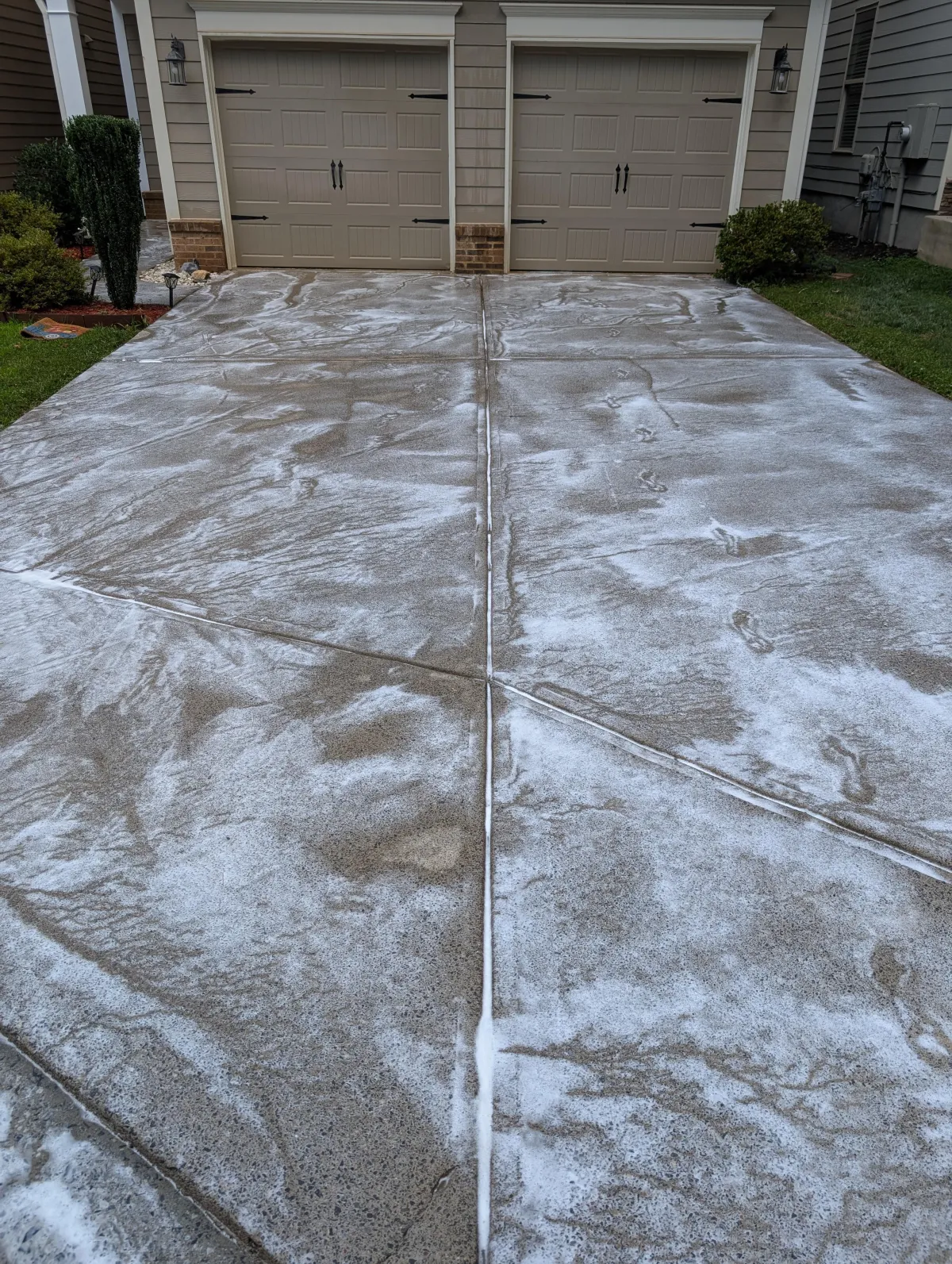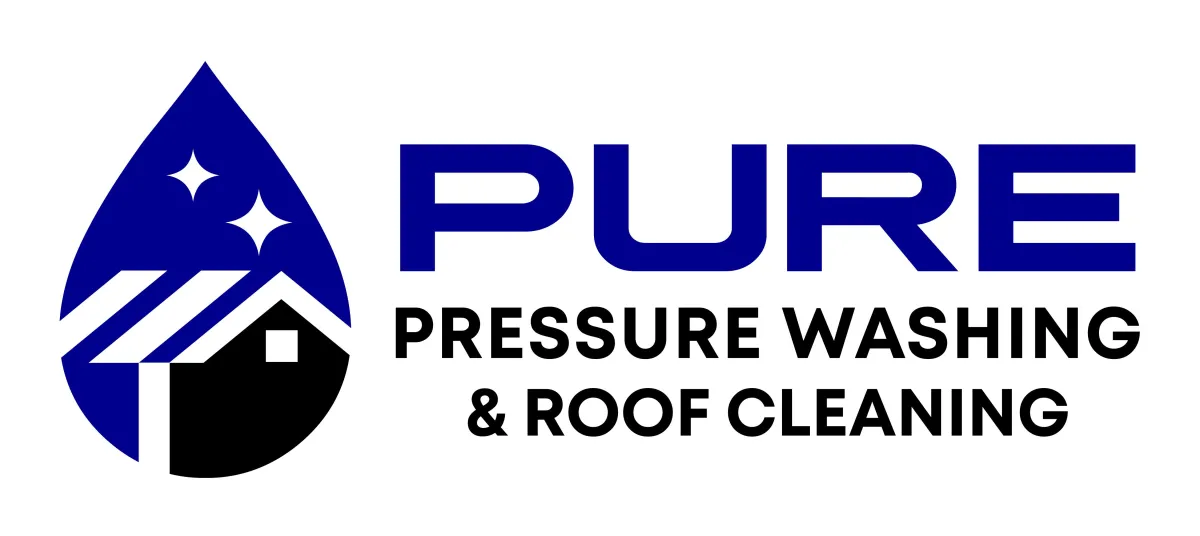House Washing | Driveway Washing | Roof Cleaning | Decks & Patios
Roof Cleaning Services
Welcome to the Pure Pressure Washing & Roof Cleaning Blog, your go-to resource for all things related to pressure washing, roof cleaning, and home exterior maintenance. Whether you’re a homeowner looking for tips on how to maintain your property or simply interested in learning more about our services, you’ll find valuable insights and expert advice right here.
At Pure Pressure Washing, we are passionate about helping you keep your home looking its best. In this blog, we share industry news, helpful guides, DIY tips, and more to help you make informed decisions about pressure washing and roof cleaning. We’ll also provide updates about our services, seasonal cleaning advice, and the benefits of maintaining your home’s exterior.

Pressure Washing vs. Soft Washing: What’s the Difference and When to Use Each
Not All Cleaning Methods Are Created Equal
Whether you're preparing your home for sale, getting rid of spring pollen buildup, or just freshening up the exterior—pressure washing and soft washing are two of the most common ways to clean outdoor surfaces.
But here’s the thing: choosing the wrong method can do more harm than good.
In this guide, we’ll break down everything Georgia homeowners need to know:
The core differences between pressure washing and soft washing
Which surfaces to clean with each
Why it matters in Georgia’s climate
Mistakes to avoid
How to choose the right method (and provider)
What Is Pressure Washing?
Pressure washing uses high-powered water spray—usually between 1,500 and 4,000 PSI (pounds per square inch)—to remove dirt, mold, algae, grease, and grime.
It’s ideal for hard, durable surfaces that can withstand force, such as:
Concrete driveways and sidewalks
Brick or stone patios
Pavers and retaining walls
Heavy equipment or tools
Pressure washers rely on raw force to lift debris. Some services may use a surface cleaner attachment or pre-treat chemicals for better results.
Key Characteristics of Pressure Washing:
High pressure (1,500–4,000 PSI)
Little to no chemical use
Cleans via brute force
Can cause damage if misused
What Is Soft Washing?
Soft washing uses low pressure (under 500 PSI) combined with specially formulated, biodegradable cleaning solutions to remove organic stains like mold, mildew, algae, and pollen from more delicate surfaces.
It doesn’t rely on force—it relies on chemical cleaning and dwell time.
Soft washing is best for:
Roofs (especially asphalt shingles)
Vinyl or wood siding
Stucco
Painted surfaces
Outdoor furniture
Fencing and decks
The cleaning solution is sprayed on, left to sit (dwell), and then rinsed off gently—or allowed to rinse naturally with rain over a few days.
Key Characteristics of Soft Washing:
Low pressure (under 500 PSI)
Uses cleaning agents
Safe for delicate surfaces
Kills mold, algae, and mildew at the root
Pressure Washing vs. Soft Washing: Side-by-Side Comparison
FeaturePressure WashingSoft WashingPSI (Water Pressure)1,500–4,000Under 500Cleaning MethodMechanical forceChemical solutionSurfacesConcrete, brick, stoneRoofs, siding, painted surfacesRisk of DamageHigh if misusedLowKills Algae/MoldNo – removes surface onlyYes – kills at the rootBest UseDriveways, patios, garage floorsRoofs, siding, decks, fences
Why Georgia Homeowners Need Both Methods
Living in Georgia presents unique challenges for your home’s exterior:
Pollen coats everything in spring
Humidity encourages rapid mold and algae growth
Red clay stains concrete
Shade and tree cover promote moss and lichen on roofs
That’s why having a professional who understands when to use each method is crucial.
Pressure Washing Needs in Georgia:
Red clay removal from driveways
Concrete sidewalks and patios
Garage floor cleaning
Stone and brick cleaning
Soft Washing Needs in Georgia:
Roof streaks caused by algae (Gloeocapsa magma)
Mildew on shaded siding
Mold on wood decks and fences
Pollen-covered siding and soffits
When to Use Pressure Washing (And When Not To)
✅ Use Pressure Washing On:
Concrete driveways and sidewalks
Paver patios
Brick walls
Pool decks (concrete only)
Metal surfaces
❌ Avoid Pressure Washing On:
Asphalt shingles
Vinyl siding
Wood decks
Painted surfaces
Stucco
Windows
High-pressure water can:
Strip paint
Etch concrete
Blow shingles loose
Force water under siding
Break window seals
When to Use Soft Washing (And When Not To)
✅ Use Soft Washing On:
Roofs (asphalt, tile, metal)
Siding (vinyl, Hardie plank, stucco)
Painted wood or fiber cement
Fencing (wood or vinyl)
Outdoor furniture
Decks
❌ Don’t Use Soft Washing On:
Oily garage floors (not effective)
Extremely dirty concrete without pre-treatment
Surfaces where force is needed to remove gum, tar, or thick debris
Soft washing is safe, effective, and preferred by most manufacturers, especially for roofs. In fact, many roofing warranties require soft washing only.
What Happens If You Use the Wrong Method?
Using Pressure Washing on a Roof:
Voids roof warranties
Blasts granules off shingles
Shortens lifespan
Can create leaks
Using Pressure Washing on Siding:
Cracks panels
Forces water behind the wall
Encourages mold inside the home
Using Soft Washing on Concrete:
Doesn’t fully lift stains
May leave marks or require follow-up scrubbing
In short: the wrong tool causes damage, adds costs, and reduces lifespan.
The Soft Washing Process: Step-by-Step
Inspection: The technician checks for damage, material type, and growth.
Application: A low-pressure system applies a biodegradable solution.
Dwell Time: The solution sits (usually 10–20 minutes) to kill contaminants.
Rinse or Rain-Off: Either lightly rinsed or left to naturally rinse in the rain.
A good soft wash treatment lasts 1–3 years, depending on the surface and environment.
The Pressure Washing Process: Step-by-Step
Inspection: Check for cracks, stains, fragile areas.
Pre-treatment (optional): Apply degreaser or detergent for tough stains.
High-Pressure Cleaning: Use wand or surface cleaner to blast away dirt.
Post-Treatment: Spot-cleaning or sealing for concrete or pavers.
Pressure washing gives immediate results and is often combined with sealing services to keep surfaces cleaner longer.
How Much Does Each Method Cost in Georgia?
ServiceSoft WashingPressure WashingRoof (1,500–2,500 sq ft)$400–$600Not recommendedHouse siding$300–$500$300–$500 (depends on method)DrivewayNot ideal$150–$300Deck$150–$300$200–$400Fence (per 100 ft)$150–$250$200–$300
Soft washing costs slightly more because of the chemicals, dwell time, and technique—but it lasts longer and reduces damage risk.
How Long Do Results Last?
SurfaceSoft Washing ResultsPressure Washing ResultsRoof2–3 yearsN/A – not recommendedSiding1–2 years6–12 monthsDrivewayN/A6–12 monthsDeck1–2 years1 year
The key difference: soft washing sanitizes and kills the problem, while pressure washing removes surface-level buildup.
How to Choose a Professional That Does Both
If your contractor only offers pressure washing, that’s a red flag.
Look for companies that:
Offer both pressure and soft washing
Have separate equipment for each
Understand manufacturer recommendations
Are licensed and insured
Use plant-safe, biodegradable chemicals
Offer a satisfaction guarantee
Ask for before/after photos of previous jobs—and make sure they explain what method they’re using and why.
Why Homeowners in Cobb, Paulding, and Cherokee Counties Need the Right Choice
Each Georgia county has its own set of environmental concerns:
Cobb County: High pollen count, shaded neighborhoods, HOA standards
Paulding County: Humid woodlands, red clay staining, rural debris
Cherokee County: Large tree coverage, moss-prone roofs, older homes
Knowing what your specific home needs—and choosing the right cleaning method—is critical to maintaining property value.
Conclusion: Pressure Washing and Soft Washing Aren’t Interchangeable
Here’s the bottom line:
Use pressure washing for concrete, brick, and stone
Use soft washing for roofs, siding, decks, and delicate surfaces
Know the difference to avoid damage and get lasting results
An experienced provider knows when to use each, how to use them properly, and how to help your home stay beautiful, clean, and protected.
✅ Ready to Clean Your Home the Right Way?
Don’t guess. Don’t risk damage.
Let the professionals recommend and deliver the perfect clean for every surface of your Georgia home.
Click below for a free estimate and expert guidance on soft vs. pressure washing.

NEED PRESSURE WASHING?
Get A Fast Estimate!
Just 60 seconds to get a professional recommendation today.
Reviews
Service Areas
Acworth
Austell
Kennesaw
Marietta
Mableton
Powder Springs
Smyrna
Vinings
Dallas
Hiram
Alpharetta
Johns Creek
Milton
Roswell
Sandy Springs
Atlanta
Canton
Woodstock
Holly Springs
Ball Ground
Waleska
Frequently Asked Questions
How often should I have my house pressure washed?
The frequency of house pressure washing can vary depending on factors like your location, climate, and the level of exposure to dirt and grime. In general, we recommend having your house pressure washed every 1-2 years to maintain its appearance and prevent long-term damage. However, our experts can assess your specific situation during a free consultation to provide a more accurate recommendation.
Is pressure washing safe for all types of surfaces, including decks and driveways?
Yes, pressure washing is a safe and effective method for cleaning a wide range of surfaces, including decks and driveways. However, the pressure and cleaning solutions used need to be adjusted based on the material and condition of the surface. Our experienced technicians are trained to use the appropriate techniques and equipment to ensure the best results without causing any damage.
Can pressure washing remove tough stains and mold from my deck or driveway?
Absolutely. Pressure washing is highly effective at removing tough stains, mold, algae, and other contaminants from your deck or driveway. Our specialized equipment and eco-friendly cleaning solutions are designed to tackle these issues, restoring the surfaces to their original beauty. For stubborn stains, we may also use techniques like hot water pressure washing to achieve the best results.
What are the benefits of professional auto detailing over DIY car washing?
Professional auto detailing offers several advantages over DIY car washing. Our skilled detailers use specialized tools and products to provide a thorough and meticulous cleaning that goes beyond what can be achieved at home. This not only leaves your car looking showroom-ready but also helps protect its paint, interior, and overall value. We save you time and effort, ensuring your vehicle receives the care and attention it deserves.

Contact
Blog
Service Areas
Cobb County, GA (Marietta, Smyrna, Kennesaw, Acworth)
Paulding County, GA (Dallas, Hiram, Powder Springs)
Bartow County, GA (Cartersville, Emerson, Adairsville)
Cherokee County, GA (Canton, Woodstock, Holly Springs)
©2025 Pure Pressure Washing & Roof Cleaning. All rights reserved.
